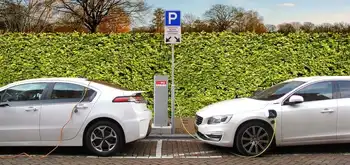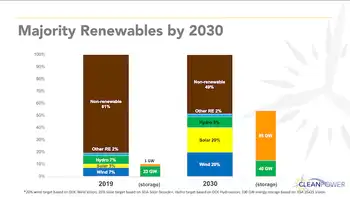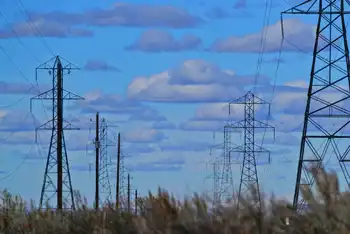Solar and building efficiency plugged by Chu
By CNET News
NFPA 70b Training - Electrical Maintenance
Our customized live online or in‑person group training can be delivered to your staff at your location.

- Live Online
- 12 hours Instructor-led
- Group Training Available
Chu was one of the featured speakers at the opening ceremony of the Solar Decathlon, a contest among 20 colleges to create the best solar-powered home. Student teams from the U.S., Canada, and Europe build homes powered only by solar energy and reconstruct them on the National Mall where they are judged in ten categories and opened to the public for viewing.
At the ceremony, Chu announced $87 million worth of Department of Energy funding in solar energy, including training for installers and studies on the use of solar in urban areas and the impact on the grid of large amounts of solar electricity.
One of the continuing barriers to solar adoption is that solar-generated electricity is costs more than getting electricity from coal or natural gas before government subsidies. Chu said that prices are falling steadily but more costs need to be wrung out, particularly the cost of installation. Solar electricity for commercial buildings is now about $4 a watt installed and more for residential buildings but once the cost drops below $2 a watt, "magic will happen," Chu said.
Although the focus of the Solar Decathlon is clearly solar energy, Chu noted that energy efficiency is a core goal of the competition.
When he was director of Lawrence Berkeley National Lab researchers concluded that adopting existing technologies — excluding solar — and inventing more would allow new buildings to be 75 percent more efficient than current practices. About 40 percent of the energy in the U.S. goes to buildings, which is about the same percentage around the world, Chu said.
He said that in nearly all the many homes he has lived in, making the houses more energy efficient "became a little hobby of mine." Chu and his wife used to ask to see the energy bills of the previous homeowners and made a game of trying to reduce the bills by 50 percent. Most of the changes are simple and cost hundreds, not thousands of dollars, he said.
"I started doing this long before I knew about climate change. And I have to confess the only reason I was doing that is because I'm fundamentally cheap," he joked.
Chu, who visited the California House and the Cornell University House, said some of the things on display are likely to deployed while others probably won't be. "Mostly what you see are young, bright, dedicated people, totally caught up with idea that yes, we can make wonderful homes that eventually will be cost effective," he said.
The homes that are on the National Mall are expensive, with many costing in the neighborhood of $500,000. But they were designed to be transported and many generate more electricity and hot water than they need.
Improvements in building design and technology are making net zero energy homes for new construction feasible. Earlier, the Obama administration issued an executive order (PDF) that all new federal buildings built by 2030 needed to be net energy zero.
After Chu spoke, a DOE official announced that there will be the first Solar Decathlon outside the U.S. will be held in June 2010 in Madrid, Spain.











